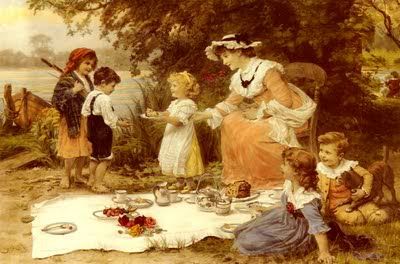
Homeschooling has produced some of the greatest men and women in history. Here is a list of famous people-people who have made a difference in this word- who were homeschooled:
Constitutional Convention Delegates
* Richard Basseti – Governor of Delaware
* William Blount – U.S. Senator
* George Clymer – U.S. Representative
* William Few – U.S. Senator
* Benjamin Franklin – Inventor and Statesman
* Alexander Hamilton – Lawyer and Economist
* William Houston – Lawyer
* William S. Johnson – Columbia College President
* William Livingston – Governor of New Jersey
* James Madison – 4th President of the U.S.
* George Mason – Justice of Virginia County Court
* John Francis Mercer – U.S. Representative
* Charles Pickney III – Governor of S. Carolina
* John Rutledge – Chief Justice U.S. Supreme Court
* Richard D. Spaight – Governor of North Carolina
* George Washington – 1st President of the U.S.
* John Witherspoon – President of Princeton
* George Wythe – Justice of Virginia High Court
Presidents
* John Adams
* John Quincy Adams
* Grover Cleveland
* Jefferson Davis (the only president of the short-lived Confederate States of America)
* James Garfield
* William Henry Harrison
* Andrew Jackson
* Thomas Jefferson
* Abraham Lincoln
* James Madison
* James Polk
* Franklin Delano Roosevelt
* Theodore Roosevelt
* John Tyler
* George Washington
* Woodrow Wilson
Statesmen
* Henry Fountain Ashurst
* William Jennings Bryan
* Winston Churchill
* Henry Clay
* John Dickinson
* Pierre du Pont
* Benjamin Franklin
* Patrick Henry
* William Penn
* Daniel Webster
Military Officers
* John Barry – Senior Navy Officer
* George Rogers Clark – Revolutionary War hero
* Nathanael Greene – Revolutionary War hero
* Nathan Hale – Revolutionary War hero
* Stonewall Jackson – Civil War General
* John Paul Jones – Father of the American Navy
* Robert E. Lee – Civil War General
* Douglas MacArthur – U.S. General
* George Patton – U.S. General
* Matthew Perry – U.S. Naval Officer
* John Pershing – U.S. General
* David Dixon Porter – Civil War Admiral
* Joseph Bradley Varnum – Revolutionary War hero
U.S. Supreme Court Judges
* Charles Evans Hughes
* John Jay
* John Marshall
* John Rutledge
* Sandra Day O’Connor
Religious Leaders
* Joan of Arc
* Dietrich Bonhoeffer
* William Carey
* Jonathan Edwards
* Philipp Melancthon
* Dwight L. Moody
* John Newton
* John Owen
* Hudson Taylor
* John & Charles Wesley
* Brigham Young
Explorers
* William Clark – Lewis & Clark Expedition
* Meriwether Lewis – Lewis & Clark Expedition
* John Wesley Powell – Colorado River Expedition
* Sir Ernest Shackleton – Antarctic Expedition
Scientists
* Wilson A. Bentley – “The Snowflake Man”
* George Washington Carver – agricultural research
* Pierre Curie – discovered radium
* Albert Einstein – theoretical physicist
* Paul Erdos – Hungarian mathematician
* Michael Faraday – electrochemist
* Pierre-Gilles de Gennes – French physicist
* Oliver Heaviside – electromagnetism researcher
* T.H. Huxley – biologist, zoologist, Darwinist
* Ruth Lawrence – mathematician
* Gilbert Newton Lewis – physical chemist
* Ada Lovelace – founder of scientific computing
* Benoit Mandelbrot – pioneer in fractal geometry
* Blaise Pascal – French mathematician
* Joseph Priestley – father of modern chemistry
* Samuel C. C. Ting – Chinese American physicist
* Konstantin Tsiolkovsky – Russian rocket scientist
Inventors
* Alexander Graham Bell – invented the telephone
* John Moses Browning – firearms inventor/designer
* Peter Cooper – built the first modern skyscraper, the first commercial locomotive, and patented the first gelatin dessert which was later named Jell-O
* Thomas Edison – invented the stock ticker, mimeograph, phonograph, and electric light bulb
* Benjamin Franklin – invented the lightning rod
* Elias Howe – invented sewing machine
* William Lear – airplane creator
* Cyrus McCormick – invented grain reaper
* Guglielmo Marconi – developed radio
* Eli Whitney – invented the cotton gin
* Sir Frank Whittle – invented turbo jet engine
* Orville and Wilbur Wright – brothers who built the first successful airplane
Artists
* William Blake – painter, engraver, poet
* John Singleton Copley – American Colonial painter
* Evelyn De Morgan – Pre-Raphaelite painter
* Christian Grew – American Painter
* Donal Hord – San Diego sculptor
* Akiane Kramarik- 10-year-old art and poetry prodigy
* Claude Monet – French Impressionist
* Grandma Moses – American folk artist
* Charles Willson Peale – American portrait artist
* Lu Pinchang – ceramic sculptor
* Leonardo da Vinci – Renaissance artist, sculptor
* Andrew Wyeth – American realist painter
* Jamie Wyeth – American realist painter
Composers
* Johann Sebastian Bach – Baroque
* Irving Berlin – Patriotic
* Anton Bruckner – Symphonies
* Noel Coward – Musicals
* Felix Mendelssohn – Romantic
* Wolfgang Amadeus Mozart – Classical
* John Porcaro – Experimental
* Francis Poulenc – Choral
* John Philip Sousa – “March King”
Writers
* Louisa May Alcott – author of Little Women
* Hans Christian Anderson – fairy tale writer
* Margaret Atwood – Canadian novelist, poet
* Fawn M. Brodie – biographer
* Pearl S. Buck – Nobel prize-winning author
* William F. Buckley, Jr. – conservative writer
* Willa Cather – American novelist
* Agatha Christie – mystery author
* Samuel Clemens – a.k.a. Mark Twain
* Charles Dickens – British novelist
* Robert Frost – Pulitzer Prize-winning poet
* Charlotte Perkins Gilman – early feminist writer
* Alex Haley – African-American novelist
* Sharlot Hall – poet, writer, Arizona historian
* Joshua Harris- pastor and author of I Kissed Dating Goodbye
* Bret Harte – frontier California journalist
* L. Ron Hubbard – science fiction writer
* Helen Keller – blind and deaf author and lecturer
* Rose Wilder Lane – journalist, ghostwriter, daughter of Laura Ingalls Wilder
* C.S. Lewis – Christian writer and apologist
* Amy Lowell – Modernist poet
* Gabriela Mistral – Nobel-prize winning Latin American poet
* Sean O’Casey – Irish author
* Thomas Paine – political writer during the American Revolution, author of Common Sense
* Christopher Paolini – teen author of Eragon
* Isabel Paterson – conservative political author
* Beatrix Potter – author of Peter Rabbit Tales
* Jedediah Purdy – author of For Common Things: Irony, Trust, and Commitment in America Today
* Kenneth Rexroth – poet, translator, critical essayist
* Carl Sandburg – American poet
* George Bernard Shaw – Irish-born playwright
* Mattie J. T. Stepanek – 11-year-old author of Heartsongs
* Rosemary Sutcliff – historical novels for children
* Rabindranath Tagore – Bengali poet, essayist, dramatist, songwriter
* Leo Tolstoy – Russian writer
* Mercy Warren – American Revolution eyewitness
* Phillis Wheatley – African-American poet
* Walt Whitman – American poet
* Laura Ingalls Wilder – children’s book author
* Virginia Woolf – English novelist
Educators
* Amos Bronson Alcott – innovative teacher, father of Louisa May Alcott
* Catharine Beecher – co-founder of the Hartford Female Seminary
* Jill Ker Conway – first woman president of Smith College
* Erik Demaine – associate professor of Computer Science at MIT
* Timothy Dwight – President of Yale University
* William Samuel Johnson – President of Columbia College
* Horace Mann – “Father of the American Common School”
* Charlotte Mason – Founder of Charlotte Mason College of Education
* Joyce Reed – Associate Dean of the College, Brown University
* Fred Terman – President of Stanford University
* Frank Vandiver – President of Texas A&M University
* Booker T. Washington – teacher and founder of Tuskegee Institute
* Noah Webster – “Father of American Christian Education”
* John Witherspoon – President of Princeton University
Medical Practitioners
* Clara Barton – started the Red Cross
* Elizabeth Blackwell – first woman in the U.S. to receive a medical degree
* Florence Nightingale – Nurse
* Susan La Flesche Picotte – first American Indian woman physician
* Albert Schweitzer – Physician
* Mary Walker – Civil War physician; recipient of the Congressional Medal of Honor
Business Entrepreneurs
* Andrew Carnegie – wealthy steel industrialist
* Amadeo Giannini – Bank of America’s founder
* Horace Greeley – New York Tribune founder
* Soichiro Honda – creator of the Honda automobile company
* Peter Kindersley – book illustrator and publisher
* Ray Kroc – founder of McDonald’s fast food restaurant chain
* Jimmy Lai – newspaper publisher; founder of Giordano International
* Dr. Orison Swett Marden – founder, Success magazine
* Adolph Ochs – New York Times founder
* Joseph Pulitzer – newspaper publisher; established Pulitzer Prize
* Colonel Harland Sanders – started Kentucky Fried Chicken
* Dave Thomas – founder of the Wendy’s restaurant chain
Others
* Abigail Adams – wife of John Adams; mother of John Quincy Adams
* Ansel Adams – photographer
* Susan B. Anthony – women’s rights leader
* John James Audubon – ornithologist and artist
* Alyssa Buecker – director, Milbo Productions
* John Burroughs – naturalist
* Jennie Chancey – historical costumer
* Davy Crockett – frontiersman
* Edward Curtis – photographer
* Robin Lee Graham – youngest person to sail around the world at age 16
* Alex and Brett Harris – twin teen writers and conference speakers for “The Rebelution,” a Christian ministry/youth organization
* Eric Hoffer – social philosopher
* Sam Houston – lawyer; first leader of Texas
* Abraham Kuyper – Dutch politician, journalist
* Mary Leakey – fossil hunter
* Charles Fletcher Lummis – journalist, historian, photographer, founder of the Southwest Society
* Harriet Martineau – first woman sociologist
* Margaret Mead – cultural anthropologist
* John Stuart Mill – free-market Economist
* Charles Louis Montesquieu – philosopher
* John Muir – naturalist
* Raymond Parks – Civil Rights activist, husband of Rosa Parks
* Sofia, Susan, and Judit Polgar – chess masters
* Bill Ridell – Newspaperman
* Will Rogers – Humorist
* Eleanor Roosevelt – wife of Franklin D. Roosevelt
* Bertrand Russell – Logician
* Drew Ryun – co-founder of Generation Joshua, director of Jim Ryun Running Camp
* Ned Ryun – co-founder of Generation Joshua, president of American Majority
* Deborah Sampson – female soldier in the American Revolution
* Emerson Spartz – 12-year-old internet entrepreneur (MuggleNet)
* Herbert Spencer – philosopher, sociologist
* Gloria Steinem – founder of Ms. magazine
* Timmy Teepell – chief of staff for Governor Bobby Jindal of Louisiana
* Lester Frank Ward – Father of American Sociology
* Martha Washington – wife of George Washington
* Frances E. C. Willard – educator, temperance leader, and suffragist
* Frank Lloyd Wright – architect
* John Lloyd Wright – architect, toy designer, inventor of Lincoln Logs
* Sho Yano – gifted child prodigy
* Elijah ben Solomon Zalman – Jewish scholar
This list was compiled by Compiled by Teri Ann Berg Olsen, author of “Learning for Life: Educational Words of Wisdom”
http://www.knowledgehouse.info
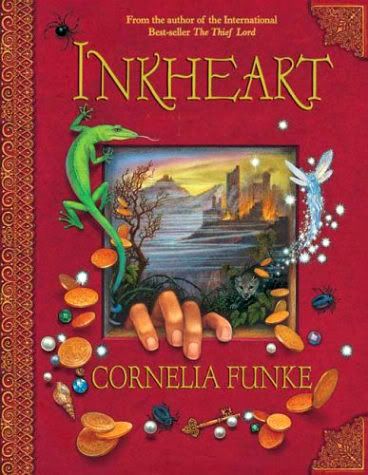



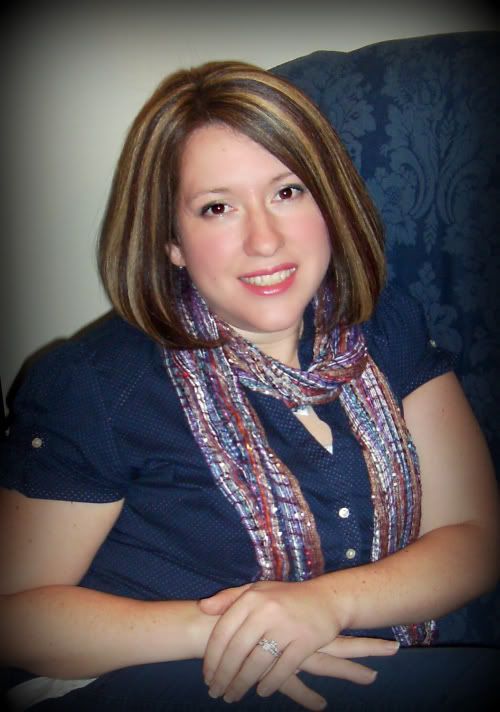 Shiloah Baker is a mom of seven, pregnant with #8, married to the man she's madly in love with. Exercise is her vice. She runs a The Homemaking Cottage and homeschools. In her spare time she sews, crafts, writes and reads. Join us at The Homemaking Cottage Deluxe Edition for 897 ways to improve your home and family!
Shiloah Baker is a mom of seven, pregnant with #8, married to the man she's madly in love with. Exercise is her vice. She runs a The Homemaking Cottage and homeschools. In her spare time she sews, crafts, writes and reads. Join us at The Homemaking Cottage Deluxe Edition for 897 ways to improve your home and family! 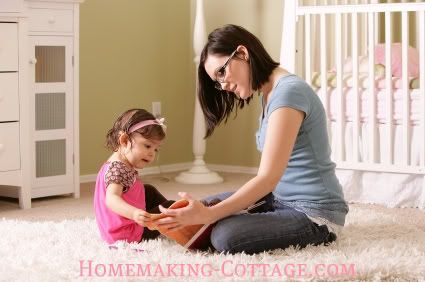 Jefferson Education or a Leadership Education. One of the suggestions was to build a library of classic books. I had maybe a small bookshelf full at that time and not surprisingly my kids weren’t big readers. I took the advice to heart and over the next four years I gathered and built a large “brain” storage of books for our home. We have over eight bookshelves now spilling over with fun, classic and educational books. More importantly, my children have caught on to this passion for reading good, wholesome literature-literature that educates. Not a day goes by that I don’t see the children pouring through books, rifling through the bookshelves or reading in a corner. We have a large bookshelf outside of my bedroom door which is at the end of a long hallway. When a child is waiting to speak with me, she naturally chooses a book, sits by my door and takes a little adventure with words on the pages. What joy it brings me to see the difference having a library of books in your home can make.
Jefferson Education or a Leadership Education. One of the suggestions was to build a library of classic books. I had maybe a small bookshelf full at that time and not surprisingly my kids weren’t big readers. I took the advice to heart and over the next four years I gathered and built a large “brain” storage of books for our home. We have over eight bookshelves now spilling over with fun, classic and educational books. More importantly, my children have caught on to this passion for reading good, wholesome literature-literature that educates. Not a day goes by that I don’t see the children pouring through books, rifling through the bookshelves or reading in a corner. We have a large bookshelf outside of my bedroom door which is at the end of a long hallway. When a child is waiting to speak with me, she naturally chooses a book, sits by my door and takes a little adventure with words on the pages. What joy it brings me to see the difference having a library of books in your home can make.  Memories from books and the pictures in the books teach, mold and shape a person. Just as we should fill our homes with uplifting and wholesome books, we should be equally as careful about not bringing anything contrary to that in the home. I heard it once said that if a young boy were to view pornography in his own home he will be a customer for life. Is it worth it to allow anything pornographic in your home? Never. Aside from the fact that it is morally wrong, the risk is too great.
Memories from books and the pictures in the books teach, mold and shape a person. Just as we should fill our homes with uplifting and wholesome books, we should be equally as careful about not bringing anything contrary to that in the home. I heard it once said that if a young boy were to view pornography in his own home he will be a customer for life. Is it worth it to allow anything pornographic in your home? Never. Aside from the fact that it is morally wrong, the risk is too great.

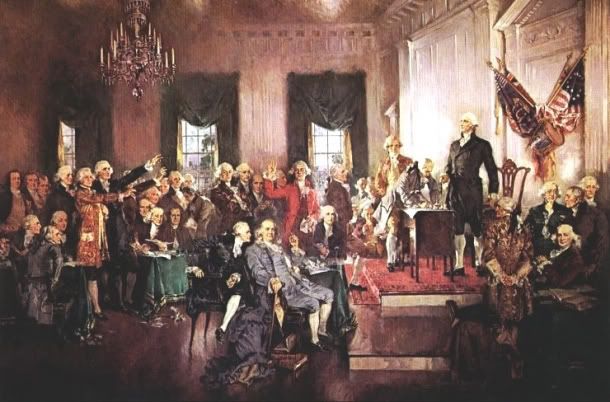


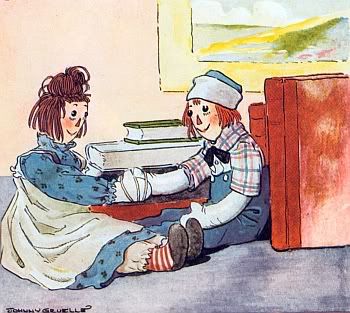
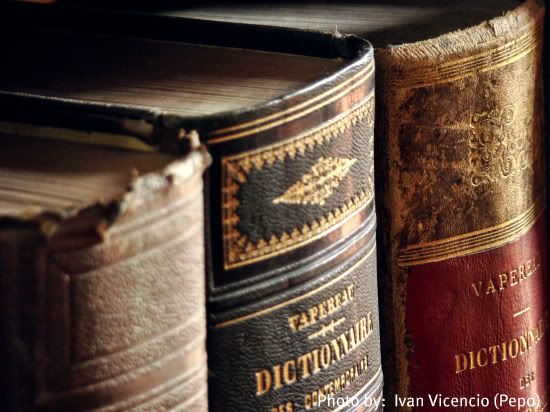 digital books and books online along with the books? I’m all for the convenience of modern technology, but there are many things that technology cannot completely take the place of without consequences and one of those is books. What has been working well for centuries shouldn’t just end because one generation found an invention they liked better.
digital books and books online along with the books? I’m all for the convenience of modern technology, but there are many things that technology cannot completely take the place of without consequences and one of those is books. What has been working well for centuries shouldn’t just end because one generation found an invention they liked better.
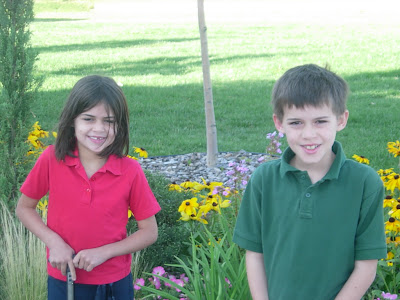
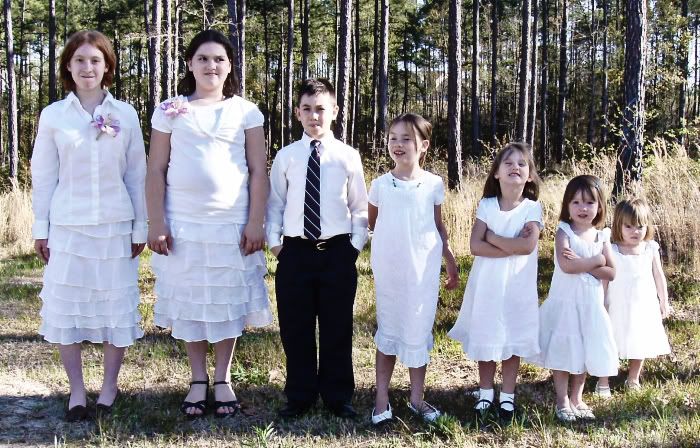 scripture reading sandwiched in between. Our family’s finished reading Esther two weeks ago and we are now reading Psalms. Reading a book at this time together is completely determined by behavior, much of the time by our six year old autistic daughter. Her only focus is on when she can get back to nature by going outside. We are currently working on the book “Making Brothers and Sisters Best Friends by Sarah, Stephan and Grace Mally. The kids love this book and we often stop and discuss each situation.
scripture reading sandwiched in between. Our family’s finished reading Esther two weeks ago and we are now reading Psalms. Reading a book at this time together is completely determined by behavior, much of the time by our six year old autistic daughter. Her only focus is on when she can get back to nature by going outside. We are currently working on the book “Making Brothers and Sisters Best Friends by Sarah, Stephan and Grace Mally. The kids love this book and we often stop and discuss each situation. fall asleep folding socks, stirring spaghetti, during scripture study and while we’re talking. Wait a second that ticks me off! Knowing that my husband works hard all day and that he gets sleepy early into the night, I make sure he is number one when he walks through that door. When I hear his footsteps on the porch and I’ve made it my goal to rush to meet him at the door and kiss him like we were just married. I once neglected to do that when I was mad at him and he was so upset by it, so I’ve tried to keep it up mad or not. Time with my husband happens when he gets home no matter if it’s 4:30pm or 8pm. No matter what I have planned or what I have going on. I love him so much and want to spend time with him when I have the chance.
fall asleep folding socks, stirring spaghetti, during scripture study and while we’re talking. Wait a second that ticks me off! Knowing that my husband works hard all day and that he gets sleepy early into the night, I make sure he is number one when he walks through that door. When I hear his footsteps on the porch and I’ve made it my goal to rush to meet him at the door and kiss him like we were just married. I once neglected to do that when I was mad at him and he was so upset by it, so I’ve tried to keep it up mad or not. Time with my husband happens when he gets home no matter if it’s 4:30pm or 8pm. No matter what I have planned or what I have going on. I love him so much and want to spend time with him when I have the chance.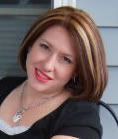


 also known as Johann Baptist Strauss, Johann Strauss, Jr., or Johann Strauss the Younger) was an Austrian composer famous for having written over 500 waltzes, polkas, marches, and galops. He was the son of the composer Johann Strauss I, and brother of composers Josef Strauss and Eduard Strauss. He is also the most famous member of the Strauss family. He was known in his lifetime as "The Waltz King", and was largely responsible for the popularity of the waltz in Vienna during the 19th century. He revolutionized the waltz, elevating it from a lowly peasant dance to entertainment fit for the royal Habsburg court.
also known as Johann Baptist Strauss, Johann Strauss, Jr., or Johann Strauss the Younger) was an Austrian composer famous for having written over 500 waltzes, polkas, marches, and galops. He was the son of the composer Johann Strauss I, and brother of composers Josef Strauss and Eduard Strauss. He is also the most famous member of the Strauss family. He was known in his lifetime as "The Waltz King", and was largely responsible for the popularity of the waltz in Vienna during the 19th century. He revolutionized the waltz, elevating it from a lowly peasant dance to entertainment fit for the royal Habsburg court.